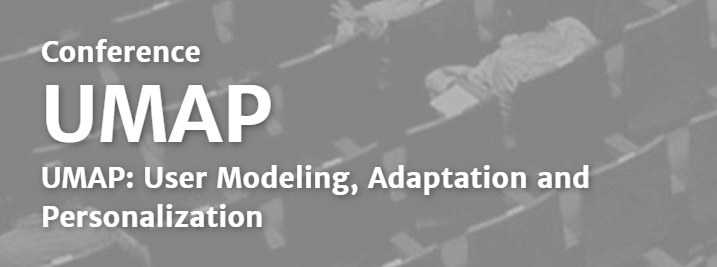Publications
Christos Fidas, Marios Belk, Argyris Constantinides, David Portugal, Pedro Martins, Anna Maria Pietron, Andreas Pitsillides, and Nikolaos Avouris. 2023. Ensuring Academic Integrity and Trust in Online Learning Environments: A Longitudinal Study of an AI-centered Proctoring System in Tertiary Educational Institutions. Education Sciences 2023, 13, 566 https://doi.org/10.3390/educsci13060566
Abstract
The credibility of online examinations in Higher Education is hardened by numerous factors and use-case scenarios. This paper reports on a longitudinal study that spanned over eighteen months in which various stakeholders from three European Higher Education Institutions (HEIs) participated aiming to identify core threat scenarios experienced during online examinations, and accordingly propose threat models, data metrics and countermeasure features that learning management systems of HEIs could embrace for addressing the identified threat scenarios. We also report on a feasibility study of an open-source intelligent and continuous student identity management system, namely TRUSTID, which implements the identified data metrics and countermeasures. A user evaluation with HEI students (n=133) reveal that the TRUSTID system is resilient and effective against impersonation attacks based on intelligent face and voice identification mechanisms, and it scores well in usability and user experience. Privacy-preservation aspects for storing, retrieving and processing sensitive personal data are also discussed.
Link to paperPortugal, D., Faria, J., Belk, M., Martins, P., Constantinides, A., Pietron, A., Pitsillides, A., Avouris, N., Fidas, C.A. (2023). Continuous User Identification in Distance Learning: A Recent Technology Perspective. Smart Learning Environments, Smart Learning Environments, 10, 38 (2023), Springer https://doi.org/10.1186/s40561‐023‐00255‐9
Abstract
The worldwide shift to distance learning at Higher Education Institutions (HEIs) during the COVID-19 global pandemic has raised several concerns about the credibility of online academic activities, especially regarding student identity management. Traditional online frameworks cannot guarantee the authenticity of the enrolled student, which requires instructors to manually verify their identities, a time-consuming task that compromises academic quality. This article presents a comprehensive review of existing efforts around continuous user identification, focusing on intelligent proctoring systems and automatic identification methods, as well as their applicability in this domain. We conclude that there is a clear need for continuous user identification technology by HEIs, but existing systems lack agile system integration models that combine many inputs, such as face, voice and behavioural data in a practical manner, and encounter numerous barriers related to data protection during implementation.
Link to paperJosé N. Faria, David Portugal, Pedro Martins, Marios Belk, Argyris Constantinides, Andreas Pitsillides, and Christos A. Fidas. 2023. Image-based Face Verification for Student Identity Management — the TRUSTID Case Study. In UMAP ’23 Adjunct: Adjunct Proceedings of the 31st ACM Conference on User Modeling, Adaptation and Personalization (UMAP ’23 Adjunct), June 26–29, 2023, Limassol, Cyprus. ACM, New York, NY, USA, 6 pages. https://doi.org/10.1145/3563359.3597397
Abstract
Managing attendance and confirming student identity in online lessons is a contemporary problem of Higher Education Institutions (HEIs) that comes with its challenges, especially in classes with large numbers of students. The development and deployment of fully automatic and continuous image-based face verification techniques may provide a natural solution for this problem and assist instructors in handling the complexity of managing student identity in a remote classroom. In this paper, we present an automatic image-based student identification framework. Our approach proposes a biometric authentication platform using a Residual Network (ResNet) Learning method for face verification. The system described is intended for use with consumer grade web cameras, providing a tradeoff between reliability and computational performance, as no assumption can be done regarding the target student hardware (i.e. CPU or GPU). This follows from the case study of TRUSTID, an European R&D initiative for intelligent student identity management in distance learning scenarios.
 Link to paper
Link to paper
Argyris Constantinides, José Faria, Taoufik Sousak, Pedro Martins, David Portugal, Marios Belk, Andreas Pitsillides, and Christos A. Fidas. 2023. TRUSTID: Intelligent and Continuous Online Student Identity Management in Higher Education. In UMAP ’23 Adjunct: Adjunct Proceedings of the 31st ACM Conference on User Modeling, Adaptation and Personalization (UMAP ’23 Adjunct), June 26–29, 2023, Limassol, Cyprus. ACM, New York, NY, USA, 4 pages. https://doi.org/10.1145/3563359.3597410
Abstract
Online learning and remote assessment of students within Higher Education Institutions (HEIs) have shown significant growth over the last few years since the COVID-19 outbreak. In this context, the shift of various HEIs to online teaching and evaluation introduced several challenges, especially with relation to student identification and interaction behavior within critical online academic activities (e.g., examinations). To overcome these challenges, existing solutions relied on a combination of an online examination through a learning management system (LMS) with a basic user authentication method for identification of students, and video conference tools for manual monitoring of students. However, such solutions fall short in dealing with various threat scenarios, and cannot be easily integrated and modified by HEIs. In this paper, we present the development and initial usability and user experience evaluation of the proof of concept of a multi-tier continuous user identification framework, bootstrapped to HEI contexts, that consists of state-of-the-art intelligent image and voice biometrics. The suggested solution is currently being implemented and evaluated by the European Commission as part of the actions of ERASMUS+ 2020 and in particular the Call “Strategic Partnerships in Response to the COVID-19 Situation: Partnerships for Digital Education Readiness in the field of Higher Education (KA226)”.
 Link to paper
Link to paper
Argyris Constantinides, Christodoulos Constantinides, Marios Belk, Christos Fidas, and Andreas Pitsillides. 2021. Applying Benford's Law as an Efficient and Low-cost Solution for Verifying the Authenticity of Users’ Video Streams in Learning Management Systems. In IEEE/WIC/ACM International Conference on Web Intelligence and Intelligent Agent Technology (WI-IAT '21). Association for Computing Machinery, New York, NY, USA, 563–569.
Abstract
An important challenge of online learning management systems (LMS) relates to continuously verifying the identity of students even after they have successfully authenticated. Although various continuous user identification solutions exist, they are rather focused on complex examination proctoring systems. Challenges further increase within large-scale online courses, which require a strong infrastructure to support numerous real-time video streams for verifying the identity of students. Considering that the students’ input video stream is an important factor for verifying their identity, and given that naturally generated data streams have been found to adhere to a pre-defined behavior as indicated by the Benford's law, in this work we investigate whether Benford's law can be applied as a reliable, efficient and cost-effective method for the detection of authentic vs. pre-recorded input video streams during continuous students’ identity verification within online LMS. In doing so, we suggest a prediction model based on the distribution of the first digits of image Discrete Cosine Transform (DCT) coefficients from the students’ input video stream. We found that the input video stream type (authentic vs. pre-recorded) can be inferred within a few seconds in real-time. A system performance evaluation indicates that the suggested model can support up to 1000 concurrent online students using a conventional and low-cost server setup and architecture.
 Link to paper
Link to paper
Privacy-preserving Biometric-driven Data for Student Identity Management: Challenges and Approaches.
Christos Fidas, Marios Belk, David Portugal, and Andreas Pitsillides. 2021. Privacy-preserving Biometric-driven Data for Student Identity Management: Challenges and Approaches. Adjunct Proceedings of the 29th ACM Conference on User Modeling, Adaptation and Personalization. Association for Computing Machinery, New York, NY, USA, 368–370.
Abstract
Biometric technologies are being considered lately for student identity management in Higher Education Institutions, as they provide several advantages over the traditional knowledge-based and token-based authentication methods, i.e., biometrics provide high security entropies, convenience and a sense of technological modernity to the end-users. While biometric technologies have many benefits from both a security and usability point of view, still there is a need for innovative user identity management solutions that continuously identify and authenticate students during academic and teaching activities. In addition, biometrics entail several threats and weaknesses with regards to the privacy of data stored about the user, which negatively affect the user acceptance and the wider adoption of biometrics due to regulatory and legal issues. In this paper, we refer to our ongoing research on intelligent and continuous online student identity management for improving security and trust in European Higher Education Institutions. We further highlight based on the literature, existing challenges, threats and state-of-the-art approaches with regards to preserving the privacy of biometric-driven data.

Link to paper

